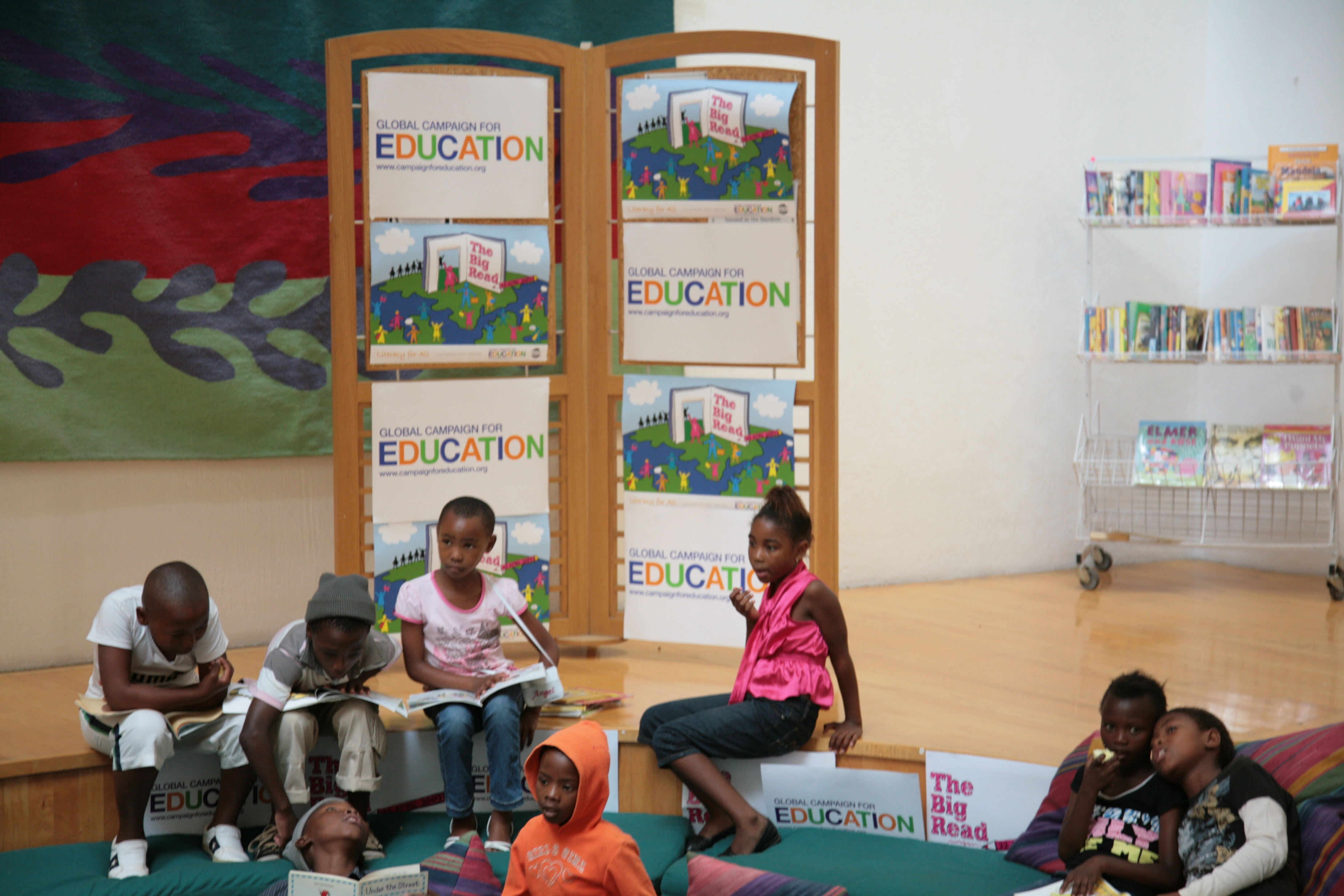To Invest in People, Prioritise Education

GCE Statement on the Occasion of the 2023 International Day of Education: To Invest in People, Prioritise Education
#InvestInEducation #EducationDay #IDE2023
On the International Day of Education, the Global Campaign for Education renews its commitment to this fundamental human right and reinforces its call to governments and the international community to advance in the realisation of the Sustainable Development Agenda and the Transforming Education Summit commitments.
As UNESCO states, 6 out of 10 children cannot read and understand a simple story at the age of 10; 244 million children and youth are still out of school, while the number of young people in employment fell by 34 million in 2020 at a higher percentage rate than that for adults[1]. Worldwide, according to Education Cannot Wait[2], climate emergencies impact the education of 40 million children yearly. Globally, 222 million young girls and boys are affected by conflict, climate-induced disasters, forced displacement and protracted crises, requiring urgent education support.
It is clear that behind the learning crisis, education is experiencing a crisis of violence and inequality, which especially affects marginalised people and communities, so the right to education must be prioritised to accelerate progress towards all the SDGs against the backdrop of a global recession, growing inequalities and climate emergencies.
The GCE has adopted a new strategic plan to strengthen our work in all the right-to-education dimensions, including the attention to the social, economic and political aspects associated with its setbacks. An evident aspect that weakens this right is its lack of sustainable financing. In fact, the annual financing gap to reach SDG-4 in low and lower-middle-income countries is estimated at$148 billion[3].
SDG 4 cannot be realised by 2030 without a significant and well-targeted increase in financing, particularly in those countries furthest from achieving quality education for all at all levels. Therefore, the adherence to the international and regional benchmarks of allocating at least 4 - 6% of the Gross Domestic Product and/or at least 15 - 20% of total public expenditure to education efficiently is more urgent than ever. International standards also call on developed countries to achieve the target of 0.7 per cent of Gross National Product (GNP) for Official Development Assistance (ODA) to developing countries[4].
The Transforming Education Summit adopted a comprehensive approach to the most pressing problems in education financing, calling to mobilise more resources, increase equity and efficiency in education investments and build stronger and more accurate education financing data and accountability.
The limited progress in this area requires greater efforts to overcome contemporary forms of colonialism that continue to weigh on developing countries related to public financing.
Unfortunately, colonial connotations continue to offer biassed interpretations about the nature of financial problems, leading to the belief that the scarcity of resources is attributable to the lack of people's capacity to solve their national problems, for which international aid is frequently proposed as a panacea to domestic revenue, thus hiding the business ambitions and political domination behind it.
The GCE insists that international aid and cooperation are not called upon to define the contents of public policy in developing countries and that one of the main challenges of our days is in strengthening national budgets. Therefore, it is necessary to transform the finance agenda by adopting a global compact - ensuring that the transformative finance agenda (which includes action on tax, debt, austerity and public sector wage bills) frames national and global debates on financing in the coming years.
Education financing should not be disconnected from the aims of education. It is not enough to increase school budgets if this does not lead to the democratisation of investment and making schools a safe and democratic space for all. The sensitivity of the budget[5] should be a guiding element of education policies and implies prioritising investments in those populations that have been historically excluded.
The increase in educational financing is not enough by itself to break the cycles of exclusion if it is not consciously directed at strengthening social justice through education. Education financing must have a political direction, and that is why it is necessary to develop monitoring and data analytical systems to guide education policy. GCE’s Education Financing Observatory is a step forward in this direction.
GCE calls all stakeholders to continue working on the realisation of the right to education, including gender equality, justice for people with disabilities and those living in emergency situations, early childhood education, adult education and learning, and the growing participation of children, teachers, students and CSOs in education governance. GCE would also like to join UNESCO in calling for the immediate lifting of the ban on girls and women in Afghanistan restricting their access to education.
________________________
[1] https://en.unesco.org/sites/default/files/education_day_2023-cn-en.pdf
[2] https://www.educationcannotwait.org/news-stories/press-releases/the-climate-crisis-disrupts-the-education-40-million-children-every
[3] https://www.developmentaid.org/api/frontend/cms/file/2020/09/374163eng.pdf
[4] Incheon Declaration and Framework for Action
[5] The GCE’s “Financing Matters. A Toolkit on domestic financing for Education” provides a comprehensive explanation of the 4S scheme, including the sensitivity of the education budget.


